Key Takeaways
1. Science Aims to Understand and Explain the World
"What is science? This question may seem easy to answer: everybody knows that subjects such as physics, chemistry, and biology constitute science, while subjects such as art, music, and theology do not."
Scientific Discovery and Exploration. Science is a systematic approach to understanding the natural world through observation, experimentation, and theory development. It emerged from a long historical process, with key moments like the scientific revolution transforming human knowledge about the universe.
Key Characteristics of Scientific Inquiry:
- Systematic observation and measurement
- Formulation of hypotheses
- Experimental testing
- Development of theories
- Continuous refinement of understanding
Historical Evolution. The scientific method developed through critical moments like Copernicus challenging geocentric models, Darwin explaining evolution, and Watson and Crick uncovering DNA's structure. These breakthroughs demonstrated science's power to reveal complex natural phenomena.
2. Scientific Inference Relies on Deduction and Induction
"Scientists often tell us things about the world that we would not otherwise have believed."
Types of Scientific Reasoning. Scientific inference involves two primary reasoning methods: deductive and inductive reasoning. Deductive reasoning provides certainty, while inductive reasoning allows scientists to make probabilistic predictions about unobserved phenomena.
Deductive vs. Inductive Reasoning:
- Deduction: Guarantees conclusion if premises are true
- Induction: Draws probable conclusions from limited observations
- Both are essential for scientific knowledge generation
Challenges in Scientific Reasoning. Philosophers like David Hume highlighted the fundamental challenge of induction - we cannot definitively prove that future events will resemble past experiences, yet scientific progress depends on this assumption.
3. Scientific Explanations Reveal Underlying Causal Mechanisms
"One important aim of science is to try and explain what happens in the world around us."
Explaining Natural Phenomena. Scientific explanations aim to uncover the causal mechanisms behind observable events, moving beyond simple description to understanding underlying processes.
Approaches to Scientific Explanation:
- Covering law model
- Causal explanations
- Theoretical identifications
- Reduction to fundamental principles
Complexity of Explanation. Not all phenomena can be fully explained by current scientific understanding. Some aspects of reality, like consciousness, remain challenging to explain through purely scientific methods.
4. Scientific Realism Debates the Nature of Scientific Knowledge
"Realists hold that science aims to provide a true description of the world, and that it often succeeds."
Philosophical Debate. Scientific realism confronts fundamental questions about the nature of scientific knowledge, particularly regarding unobservable entities like atoms and electrons.
Key Perspectives:
- Realism: Scientific theories describe real world phenomena
- Anti-realism: Theories are useful predictive tools
- Empirical success as evidence for theoretical truth
Ongoing Philosophical Inquiry. The debate involves examining the relationship between scientific theories and observable reality, challenging simplistic notions of scientific knowledge.
5. Scientific Paradigms Evolve Through Revolutions
"Science changes fast. Pick virtually any scientific discipline you like, and you can be sure that the prevalent theories in the discipline will be different from those of fifty years ago."
Paradigm Shifts. Thomas Kuhn argued that scientific progress occurs through revolutionary changes in fundamental frameworks, not through linear accumulation of knowledge.
Characteristics of Scientific Revolutions:
- Challenging existing theoretical frameworks
- Introducing radically new conceptual models
- Transforming scientific understanding
- Social and institutional dimensions of change
Continuous Transformation. Scientific knowledge is dynamic, with periods of normal science interrupted by revolutionary paradigm shifts that fundamentally restructure scientific understanding.
6. Philosophical Problems Exist in Specific Scientific Disciplines
"There are interesting philosophical questions that are specific to particular sciences."
Interdisciplinary Philosophical Investigations. Philosophical analysis reveals complex conceptual issues within specific scientific domains like physics, biology, and psychology.
Example Philosophical Problems:
- Nature of space and time in physics
- Definition of biological species
- Understanding mental modularity
Bridging Philosophy and Science. Philosophical inquiry helps clarify conceptual foundations, challenge assumptions, and explore deeper meanings within scientific disciplines.
7. Science Faces Ongoing Critiques and Challenges
"Many people take it for granted that science is a good thing, for obvious reasons."
Critical Perspectives on Science. Scientific enterprise faces challenges from various philosophical, social, and ethical perspectives.
Major Critique Themes:
- Scientism and limits of scientific knowledge
- Tensions between science and religion
- Value-neutrality of scientific research
- Ethical implications of scientific discoveries
Ongoing Dialogue. These critiques encourage reflective engagement with scientific methodology, promoting more nuanced understanding of science's role in society.
Last updated:
FAQ
What's "Philosophy of Science: A Very Short Introduction" about?
- Overview of Philosophy of Science: The book by Samir Okasha provides a concise introduction to the philosophy of science, exploring fundamental questions about the nature and methods of scientific inquiry.
- Key Themes: It covers topics such as scientific reasoning, explanation, realism vs. anti-realism, and the nature of scientific revolutions.
- Historical Context: The book also delves into the historical development of scientific ideas, highlighting key figures and breakthroughs in the history of science.
- Philosophical Analysis: Okasha examines philosophical problems specific to various sciences, including physics, biology, and psychology.
Why should I read "Philosophy of Science: A Very Short Introduction"?
- Understanding Science: It offers insights into how science works, its aims, and its limitations, which is valuable for anyone interested in the scientific process.
- Philosophical Perspective: The book provides a philosophical lens through which to view scientific practices, enhancing critical thinking about scientific claims.
- Broad Audience: Written in an accessible style, it is suitable for both beginners and those with some background in philosophy or science.
- Relevance: Understanding the philosophy of science is crucial in a world increasingly driven by scientific and technological advancements.
What are the key takeaways of "Philosophy of Science: A Very Short Introduction"?
- Nature of Science: Science is not just a collection of facts but a systematic method of inquiry aimed at understanding the world.
- Scientific Inference: The book discusses the role of deduction and induction in scientific reasoning and the challenges associated with them.
- Realism vs. Anti-Realism: It explores the debate over whether scientific theories describe reality or are merely tools for prediction.
- Scientific Change: Kuhn's theory of scientific revolutions is highlighted, showing how scientific paradigms shift over time.
What is scientific realism according to Samir Okasha?
- Definition: Scientific realism is the view that science aims to provide a true description of the world, including unobservable entities like electrons and quarks.
- Empirical Success: Realists argue that the empirical success of scientific theories is best explained by their truth or approximate truth.
- Criticism: Anti-realists counter that theories are merely instruments for predicting observable phenomena, not necessarily true descriptions of reality.
- Historical Context: The book discusses historical examples where successful theories were later found to be false, challenging the realist position.
How does Samir Okasha explain scientific inference?
- Deduction and Induction: Okasha distinguishes between deductive reasoning, where conclusions follow necessarily from premises, and inductive reasoning, which involves generalizing from specific instances.
- Hume's Problem: The book addresses Hume's problem of induction, questioning the justification for assuming that the future will resemble the past.
- Inference to the Best Explanation: Okasha discusses this form of reasoning, where scientists choose the hypothesis that best explains the available data.
- Bayesian Approach: The book also explores Bayesian probability as a framework for updating beliefs based on new evidence.
What is the covering law model of explanation?
- Hempel's Model: The covering law model, proposed by Carl Hempel, suggests that scientific explanations involve subsuming phenomena under general laws.
- Structure: An explanation consists of premises (laws and initial conditions) that logically entail the phenomenon to be explained.
- Criticisms: The model faces challenges, such as the problem of irrelevance and the asymmetry of explanation, where it fails to capture causal relationships.
- Alternative Views: Okasha discusses causal accounts of explanation, which emphasize the role of causality in understanding phenomena.
What is Kuhn's theory of scientific revolutions?
- Paradigm Shifts: Kuhn argued that science progresses through a series of paradigm shifts, where an existing framework is replaced by a new one.
- Normal vs. Revolutionary Science: During normal science, research is conducted within the confines of a paradigm, while revolutionary science involves paradigm shifts.
- Incommensurability: Competing paradigms are often incommensurable, meaning they cannot be directly compared using a common standard.
- Impact: Kuhn's ideas challenged the traditional view of science as a linear, cumulative process and emphasized the social aspects of scientific change.
How does Samir Okasha address the realism vs. anti-realism debate?
- Realism: Realists believe that scientific theories aim to describe the world accurately, including unobservable entities.
- Anti-Realism: Anti-realists argue that theories are tools for organizing observations and making predictions, not necessarily true descriptions.
- No Miracles Argument: Realists use this argument to claim that the success of science would be miraculous if theories were not at least approximately true.
- Underdetermination: Anti-realists highlight that multiple theories can explain the same data, challenging the notion of a single true theory.
What are the philosophical problems in physics discussed by Samir Okasha?
- Absolute vs. Relational Space: The book explores the debate between Newton's absolute space and Leibniz's relational space.
- Newton's Bucket Experiment: Newton's thought experiment is used to argue for the existence of absolute space based on observable effects.
- Leibniz's Critique: Leibniz challenges the notion of absolute space, arguing that it leads to indiscernible but distinct universes, violating his principle of identity.
- Modern Implications: The discussion touches on how these historical debates continue to influence contemporary physics.
How does Samir Okasha approach the concept of biological species?
- Species Problem: The book discusses the lack of consensus among biologists on what constitutes a species.
- Biological Species Concept: One approach defines species based on reproductive isolation, but this has limitations, such as with asexual organisms and hybrid zones.
- Phylogenetic Systematics: This approach classifies species based on evolutionary relationships, emphasizing monophyletic groups.
- Species as Individuals: Okasha explores the idea that species are not natural kinds but complex individuals with a unique evolutionary history.
What is the modularity of mind hypothesis?
- Definition: The hypothesis suggests that the mind consists of specialized modules, each designed for specific cognitive tasks.
- Chomsky's Language Module: Chomsky proposed a language acquisition device as an example of a mental module.
- Fodor's View: Fodor argues that some cognitive processes are modular, characterized by domain-specificity, mandatory operation, and informational encapsulation.
- Debate: The book discusses the ongoing debate over the extent of modularity in the human mind and its implications for cognitive psychology.
What are the criticisms of science discussed in the book?
- Scientism: The book addresses the criticism that science is overvalued and that scientific methods are not applicable to all areas of inquiry.
- Science and Religion: It explores the tension between scientific explanations and religious beliefs, particularly in the context of evolution and intelligent design.
- Value-Ladenness: Okasha examines the argument that science is not value-free, with examples from evolutionary psychology and psychiatry highlighting potential biases.
Review Summary
Philosophy of Science: A Very Short Introduction is generally well-received as an accessible and concise overview of key concepts in the field. Readers appreciate its clear explanations of complex topics, although some find it too basic. The book covers scientific reasoning, realism vs. anti-realism, and scientific revolutions. Many recommend it as a starting point for those new to philosophy of science, praising its objectivity and thought-provoking content. Some readers note that it sparked their interest in further exploration of the subject.
Very Short Introductions Series Series

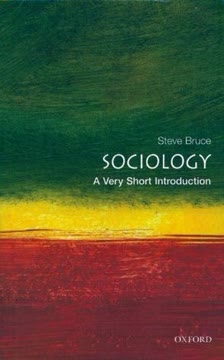

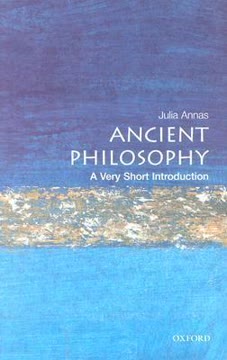




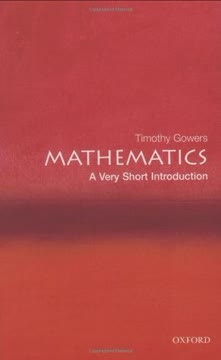
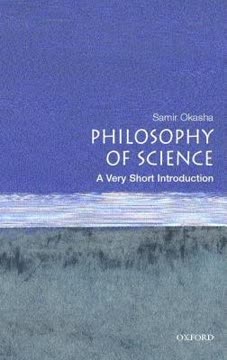
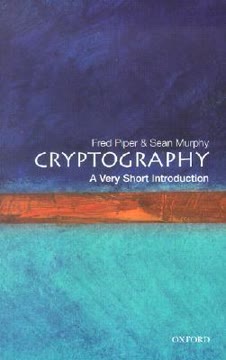
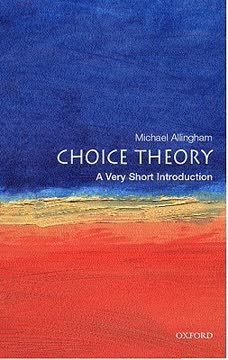
Similar Books
Download PDF
Download EPUB
.epub digital book format is ideal for reading ebooks on phones, tablets, and e-readers.









